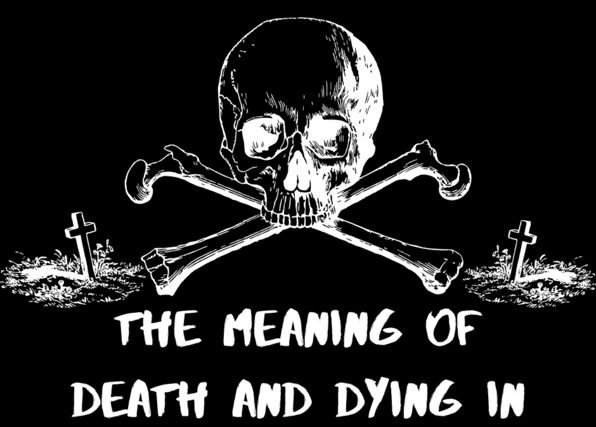Understanding the meaning behind our dreams has captivated the human imagination for centuries. Among the most mystifying and thought-provoking dream themes is the subject of death. Dreams about death can evoke a mix of emotions, from fear and sadness to curiosity and introspection. In this article, we will delve into the symbolism and interpretation of dreams about death, exploring their significance and uncovering the hidden messages they may hold. Through a step-by-step examination of different types of death dreams and common themes and symbols, we will shed light on the complex world of dream interpretation. So, grab your metaphorical detective hat and let’s embark on a journey to decode the secrets of dreams about death.
The Significance of Dreams
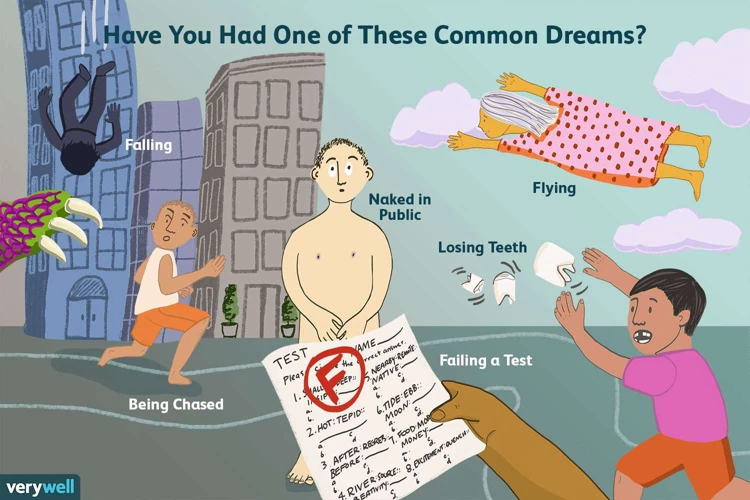
Dreams have long fascinated and perplexed humans, as they offer a window into the depths of our subconscious minds. They can transport us to surreal landscapes, evoke vivid emotions, and stir our deepest desires. Dreams have been studied and interpreted for centuries, with many believing that they hold significant meanings and insights into our waking lives. Whether it’s a dream about falling teeth, dreams involving famous people, or the symbolism of being pursued, each dream carries its own unique messages and interpretations. Our dreams can provide glimpses into our innermost thoughts, unresolved conflicts, and unexpressed desires. They serve as a powerful tool for self-reflection and personal growth, guiding us towards a better understanding of ourselves and our experiences. So, let’s dive further into the mysterious realm of dreams and explore the significance they hold in our lives.
1. Understanding Dream Symbolism
Understanding dream symbolism is a crucial aspect of unlocking the hidden meanings behind our dreams. Dreams often communicate through symbols, which can be interpreted to reveal deeper insights and messages. Symbolism in dreams is highly subjective and can vary based on personal experiences and cultural influences. To comprehend dream symbolism, it’s important to pay attention to recurring symbols or themes within dreams. These symbols can range from objects, animals, people, locations, colors, and even actions. For example, dreaming about teeth falling out could symbolize insecurity or a fear of losing power. Famous people appearing in dreams may represent aspects of ourselves that we admire or aspire to. Being pursued in dreams may symbolize unresolved fears or anxieties. Additionally, symbols can possess universal meanings, such as water representing emotions or snakes representing transformation. It’s essential to consider the context and emotions associated with the symbols to discern their significance accurately. Familiarity with common dream symbols can aid in unraveling the intricate tapestry of dreams and gaining deeper self-awareness. To explore more about specific dream symbols like falling teeth, famous people, or being pursued, check out our articles on fascinating secrets of dreams, the meaning of dreams involving famous people, or the symbolism of being pursued in dreams.
2. Why We Dream About Death
Dreams about death have a profound impact on our psyche, often leaving us with a sense of fear, unease, or even curiosity. But why do we dream about death? The reasons behind these dreams are multifaceted and can vary from person to person. One possible explanation is that dreams about death serve as a reflection of our own mortality and the inevitable cycle of life. As humans, we are aware of our finite existence, and this awareness can manifest itself in our dreams. Additionally, dreams about death may symbolize the end of certain aspects of our lives, such as relationships, jobs, or personal identities. They can signify the need for change or transition in our waking lives. It is also believed that dreams about death can be influenced by external factors such as media exposure to death-related content, personal experiences with loss, or cultural and religious beliefs. It’s important to note that not all dreams about death are inherently negative; they can also serve as a form of rebirth, transformation, or spiritual awakening. So, the next time you find yourself immersed in a dream about death, consider the context and symbolism within it, as it may hold valuable insights into your subconscious mind. (Source: /symbolism-of-being-pursued-in-dreams/)
Interpreting Dreams About Death
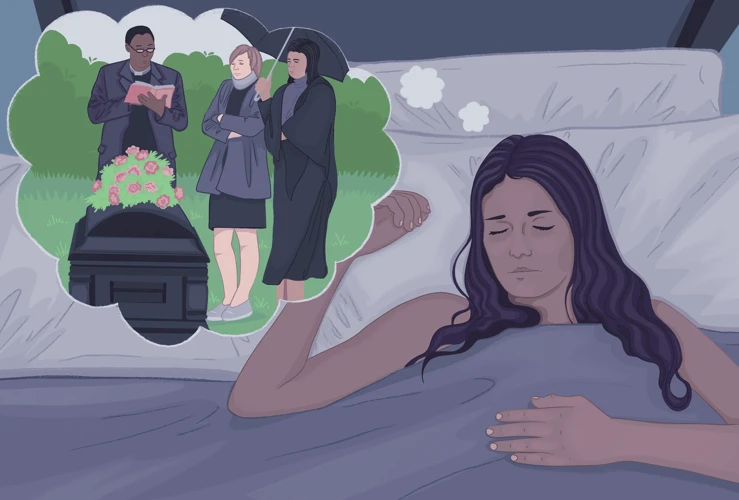
Interpreting dreams about death requires a delicate and nuanced approach, as these dreams can have multiple layers of symbolism and meaning. One of the key aspects of interpretation is analyzing death as a symbol rather than a literal event. Death in dreams often signifies change, transformation, or the end of a phase in our lives. It can represent the need to let go of old habits, beliefs, or relationships in order to embrace personal growth and transformation. Dreams about death can also serve as a reflection of our subconscious fears and anxieties surrounding mortality and the unknown. By exploring different types of death dreams, such as the death of a loved one or the death of the dreamer themselves, we can unravel the intricate messages that lie within these powerful dreams. So, let’s dive deeper into the symbolism and interpretation of dreams about death and unlock their hidden meanings.
1. Analyzing Death as a Symbol
When analyzing death as a symbol in dreams, it is important to approach it with a nuanced understanding. Death in dreams is typically not a literal representation of physical death, but rather symbolizes transformation, change, or the end of a chapter in one’s life. Death can signify the letting go of old beliefs, behaviors, or relationships, making way for new beginnings and personal growth. It can also represent the fear of the unknown or the need for closure in certain aspects of life. The specific context and emotions surrounding the dream are crucial in interpreting the meaning of death as a symbol. For example, dreaming of the death of a loved one may reflect unresolved grief or the need for emotional healing. On the other hand, dreaming of one’s own death may indicate a desire for self-transformation or a fear of losing oneself in the process. It is important to consider the individual’s personal experiences and emotions when analyzing death as a symbol in dreams. By delving deeper into the symbolism of death in dreams, we can gain insights into our own subconscious thoughts and emotions, ultimately leading to a greater understanding of ourselves and our journey in life. (Source: fascinating-secrets-dreams-falling-teeth)
2. Different Types of Death Dreams
Different types of death dreams can manifest in various ways, each carrying its own unique symbolism and significance. One common type of death dream is experiencing the death of a loved one. These dreams can be emotionally intense and may reflect feelings of grief, loss, or unresolved issues surrounding the relationship. They can also serve as a form of processing and acceptance of the natural cycle of life and death. Another type of death dream involves the dreamer’s own death. These dreams can be particularly unsettling, as they confront our own mortality and raise existential questions about the meaning of life. They often symbolize a significant transition or change approaching in the dreamer’s waking life, such as the end of a phase or the start of something new. Additionally, death dreams involving strangers or acquaintances can appear, which suggest that the dreamer is grappling with unfamiliar aspects of themselves or exploring the idea of interpersonal relationships. These dreams may serve as a catalyst for self-discovery and growth. It’s important to note that the interpretation of death dreams is highly subjective and can vary depending on the individual’s personal experiences and emotions. Exploring the specific context and emotions surrounding the dream can provide deeper insights into its meaning. By understanding the different types of death dreams and their symbolic implications, we can unravel the hidden messages they hold and gain a deeper understanding of ourselves and our subconscious mind. (Source: /meaning-dreams-famous-people-signify/)
Common Themes and Symbols
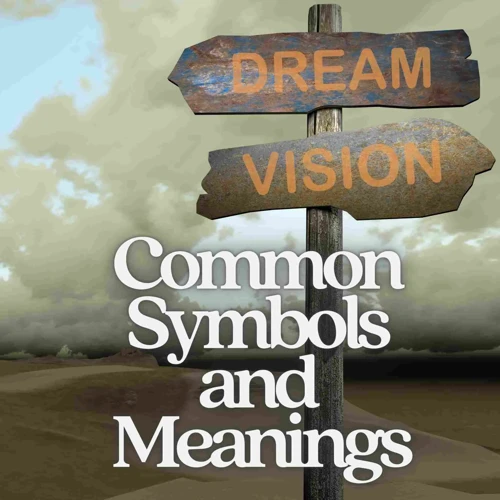
In the realm of dreams about death, there are common themes and symbols that frequently appear, each carrying its own unique significance. One of the most common themes is the death of a loved one. This dream can be unsettling and often reflects unresolved grief or feelings of loss. Another theme is the death of the dreamer themselves, which can signify transformation, rebirth, or a desire for change in one’s life. Dreams involving the death of strangers or acquaintances may represent feelings of disconnect or a need for boundaries. Symbolic representations of death, such as skeletons, graveyards, or black cats, can also appear in dreams and carry metaphorical meanings. These symbols often reflect the dreamer’s subconscious fears, anxieties, or unresolved emotions. By identifying these common themes and symbols, we can gain a deeper understanding of the messages our dreams are trying to convey.
1. Death of a Loved One
Dreams about the death of a loved one can be particularly emotional and poignant. These dreams may shake us to the core, leaving us with feelings of sadness, grief, and loss upon waking. However, it is important to note that dreaming about the death of someone close to us does not necessarily indicate a literal prediction of their fate. Instead, these dreams often symbolize a deeper emotional process that we are going through. The death of a loved one in a dream may represent the end of an era, the closing of a chapter in our lives, or the need to let go of certain emotions or attachments. It could be a reflection of unresolved feelings or a way for our subconscious to process the pain and sadness associated with loss. It is a reminder that grief is a natural part of the human experience and that we may need to confront our emotions and find healing within ourselves. These dreams can serve as a catalyst for personal growth, allowing us to explore our emotions and find closure in our relationships. It is important to approach these dreams with compassion and understanding, giving ourselves the space and time to grieve and reflect on the significance that our loved ones hold in our lives.
2. Death of the Dreamer
When it comes to dreams about death, one specific theme that often arises is the death of the dreamer themselves. This type of dream can be particularly unsettling, as it involves the dreamer experiencing their own demise. While these dreams can be disturbing, they typically do not have literal meanings. Rather, they are often symbolic representations of significant changes or transformations happening in the dreamer’s life. It is important to approach these dreams with open-mindedness and a willingness to explore their deeper meanings.
The death of the dreamer can symbolize the end of a particular phase or aspect of the dreamer’s life. It may indicate the shedding of old beliefs, behaviors, or patterns that no longer serve a purpose. This dream can also signify the need for personal growth and the willingness to let go of the past in order to embrace new opportunities.
Additionally, dreams about the death of the dreamer can reflect a desire for self-transformation or a fear of the unknown. They may be an expression of the dreamer’s subconscious anxieties or insecurities, highlighting their concerns about the future or their own mortality. These dreams can serve as a reminder to prioritize personal development and make positive changes in one’s life.
It is crucial to consider the emotional context of the dream as well. The feelings experienced during the dream can provide valuable insights into its interpretation. Fear, confusion, or sadness may indicate resistance to change, while acceptance or peace may suggest a willingness to embrace transformation.
Dreams about the death of the dreamer can be seen as an invitation to reflect on personal growth, confront fears, and embrace transformation. By exploring the symbolism and emotions associated with this type of dream, individuals can gain a deeper understanding of themselves and navigate through life’s changes with greater clarity and resilience.
3. Death of Strangers or Acquaintances
When it comes to dreams about death, it’s not uncommon to dream about the death of strangers or acquaintances. These dreams can be puzzling and may leave us wondering about their significance. One possible interpretation is that the death of strangers or acquaintances in dreams may symbolize a sense of detachment or emotional distance. It could suggest that we are feeling disconnected from certain aspects of our lives or relationships. These dreams might also highlight our subconscious awareness of the transient nature of human connections. It’s not unusual to encounter different individuals throughout our lives, and their presence, even in our dreams, can have an impact on our emotions and thoughts. Additionally, dreaming about the death of strangers or acquaintances could reflect our fear or anxieties about the unknown. The unfamiliarity of these individuals in our dreams may serve as a metaphor for the uncertainties and apprehensions we experience in our waking lives. It’s important to explore our feelings and emotions surrounding these dreams to gain a deeper understanding of their personal significance and potential implications for our waking lives.
4. Symbolic Representations of Death
In dreams, death can be represented in various symbolic ways, each carrying its own meaning and significance. These symbolic representations often provide clues to the underlying message or emotions associated with the dream. One common symbolic representation of death is the presence of a skeleton. The skeleton symbolizes the bare essence of life, stripped of all flesh and superficiality. It may suggest a need for introspection or a reminder of the impermanence of earthly existence. Another symbolic representation is the presence of a grim reaper or hooded figure. This figure often represents the personification of death, serving as a reminder of mortality and the inevitability of the end. The appearance of a coffin or grave can also symbolize death in dreams. It may indicate the need to let go of the past or bury certain aspects of our lives to make way for new beginnings. Additionally, dreams about dying flowers, wilting plants, or a darkened sky may symbolize the impending end of a phase or situation. These symbolic representations of death serve as metaphors that invite us to reflect on the transformations and transitions happening in our lives. By understanding the symbolic language of our dreams, we can gain deeper insights into our emotions, fears, and desires related to the concept of death.
Considerations for Interpretation
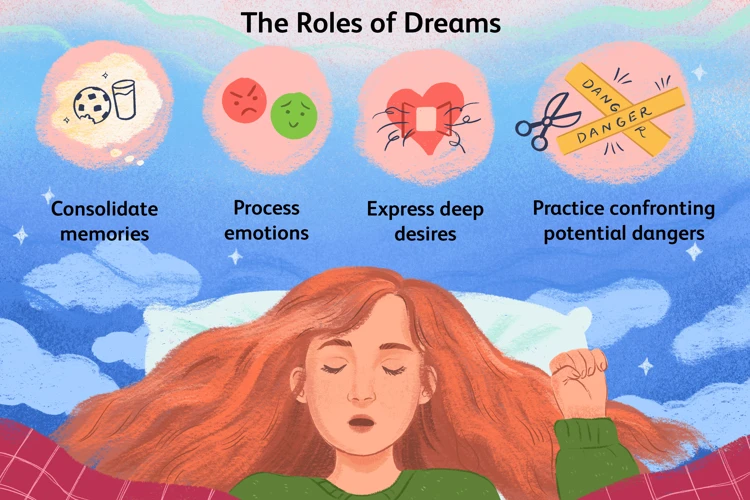
When it comes to interpreting dreams about death, there are several important considerations to keep in mind. Firstly, personal experiences and emotions play a significant role in dream interpretation. Our individual histories and relationships can shape the way we perceive and respond to death-related dreams. Additionally, cultural and religious influences can have a profound impact on how we interpret these dreams. Beliefs and traditions surrounding death vary greatly across cultures, and these perspectives can color our understanding of death-related symbolism in dreams. Lastly, contextual factors within the dream itself should be taken into account. The details, settings, and interactions in the dream can provide clues and hints to the underlying meaning. By considering these factors, we can approach the interpretation of death dreams with a nuanced and comprehensive perspective, allowing us to unlock the deeper messages they may hold.
1. Personal Experience and Emotions
Our personal experiences and emotions play a crucial role in interpreting dreams about death. Every individual has their unique set of experiences and emotions related to death, and these can greatly influence the symbolism and meaning of their dreams. For example, someone who has recently lost a loved one may have dreams about death that reflect their grief, longing, or unresolved emotions. These dreams can serve as a way for the dreamer to process their loss and find solace or closure. On the other hand, individuals who have a chronic fear or anxiety related to their mortality may have death dreams that stem from their deep-seated fears. These dreams can be a manifestation of their anxieties and a reminder to confront their fears or seek support. Understanding our personal experiences and emotions is crucial in deciphering the meaning behind our dreams about death. By reflecting on our own unique circumstances and emotions, we can start to unravel the messages that our dreams are trying to convey.
2. Cultural and Religious Influences
Cultural and religious influences play a significant role in shaping our beliefs, values, and interpretations. When it comes to dreams about death, these influences can have a profound impact on how we perceive and interpret them. Different cultures and religions have their own unique views and symbolism surrounding death, and these beliefs can seep into our dreams. For example, in some cultures, death is seen as the transition to the afterlife or a new beginning, while in others, it may be viewed as the end of life. These cultural and religious beliefs can influence the emotions and reactions we experience in our dreams about death. They can shape the symbols and imagery that appear, such as angels, demons, or specific rituals associated with death. Additionally, cultural and religious taboos around death can also influence the frequency or content of death-related dreams. It is important to take these cultural and religious factors into consideration when interpreting dreams about death, as they can offer valuable insights into the dreamer’s worldview and belief system.
3. Contextual Factors in the Dream
In the interpretation of dreams about death, contextual factors play a crucial role in understanding the underlying meaning. The setting, characters, and events within the dream can provide valuable clues. For example, the location of the dream may hold significance. Is it a familiar place or an unknown environment? Is it a peaceful setting or a chaotic one? These details can help decipher the emotional context and the overall message of the dream. Additionally, the presence of specific individuals in the dream can also be significant. Pay attention to the relationships and interactions between the dreamer and the characters. Are they known or unknown individuals? Loved ones, strangers, or acquaintances? Each person may represent different aspects of the dreamer’s psyche or symbolize certain emotions and relationships in waking life. Lastly, the events and actions that unfold in the dream can provide further insight. Are there any unexpected twists or recurring patterns? Analyzing the sequence of events can shed light on unresolved conflicts, inner fears, or desires. Taking these contextual factors into account helps paint a more complete picture and enables a deeper understanding of the dream’s symbolic portrayal of death.
How to Approach Death Dreams
Approaching dreams about death requires a delicate balance between introspection and open-mindedness. When faced with these unsettling dreams, it is important to reflect on our personal losses and the emotions they evoke. It can be helpful to explore our fears and mortality, allowing ourselves to confront these deep-seated anxieties head-on. Seeking guidance or closure through therapy, meditation, or even conversations with loved ones can aid in the process of understanding and processing these dreams. By approaching death dreams with a willingness to explore their symbolism and underlying messages, we can gain valuable insights into our own subconscious thoughts and emotions. It is through this exploration that we can ultimately find solace, meaning, and personal growth amidst the enigmatic world of dreams.
1. Reflecting on Personal Loss
Reflecting on personal loss is a significant aspect when interpreting dreams about death. These dreams often evoke intense emotions and can bring forth unresolved feelings related to the loss of a loved one. When analyzing dreams of this nature, it is essential to consider the relationship between the dreamer and the deceased. The dream may serve as a way for the individual to process their grief, allowing them to say goodbye or find closure. It can offer an opportunity to reconnect with the deceased through symbolic imagery or conversations within the dream. It is also important to examine the emotions that arise during the dream, as they may provide clues to unresolved emotions or lingering pain. Recognizing and acknowledging these emotions in waking life can support the healing process. Additionally, reflecting on personal memories, moments shared, and the impact of the loss can provide valuable insights into the dream’s significance. By exploring the connection between the dream and the personal loss experienced, individuals can gain a deeper understanding of their emotions and find solace in their healing journey.
2. Exploring Fear and Mortality
Dreams about death can often tap into our deepest fears and anxieties surrounding mortality. When we dream about death, it is natural for feelings of fear and unease to arise. These dreams can serve as a catalyst for exploring our own mortality and the existential questions that come with it. They may prompt us to reflect on our own lives, our purpose, and the uncertainty of what lies beyond. The fear of death is a universal human experience, and dreams can provide a safe space to confront and process these fears. By exploring the symbolism and messages within death dreams, we can gain insight into our beliefs, values, and fears surrounding mortality. These dreams may also serve as a reminder to live our lives fully, embracing each day as a precious gift. It is important to approach dreams about death with an open mind and willingness to delve into our deepest emotions and fears. Through this exploration, we can gain a deeper understanding of ourselves and find ways to live more authentically and purposefully.
3. Seeking Guidance or Closure
In some dreams about death, the dreamer may find themselves seeking guidance or closure. These dreams often occur when the dreamer is grappling with unresolved emotions or seeking clarity in a particular aspect of their life. They may represent a subconscious yearning for guidance from someone they have lost, whether it is a deceased loved one or a mentor. In these dreams, the deceased person often takes on the role of a wise advisor or guardian, offering comfort, reassurance, or advice. The dreamer may feel a deep sense of relief and peace after encountering their departed loved one in their dream, as if they have received the closure or guidance they were seeking. Importantly, these dreams should be interpreted more metaphorically, rather than as literal communication from the deceased. They reflect the dreamer’s own inner desires for resolution or support in their waking life. Exploring the feelings and emotions tied to these dreams can be a helpful step towards personal growth and healing. Whether it involves talking to a therapist, confiding in a trusted friend, or engaging in self-reflection, seeking guidance or closure in the waking world can complement the insights gained from these dreams. By addressing unresolved emotions and seeking support, the dreamer can move forward with a greater sense of clarity and fulfillment.
Conclusion
In conclusion, dreams about death encompass a wide range of symbolism and interpretation. They hold profound significance and can offer valuable insights into our subconscious thoughts, emotions, and fears. Understanding the symbolism and context of these dreams is crucial in unraveling their hidden messages and personal meanings. It is important to approach death dreams with an open mind and consider various factors such as personal experiences, cultural influences, and the specific context of the dream. Reflecting on personal loss, exploring fear and mortality, or seeking guidance and closure are just a few ways to approach and understand these dreams on a deeper level. While dreams about death may leave us with a mix of emotions, they ultimately serve as a reminder of the complexity of the human mind and the need for introspection and self-awareness. So, the next time you find yourself pondering the meaning of a death dream, remember to embrace the journey of interpretation and unlock the wisdom that lies within.
Frequently Asked Questions
1. What is the significance of dreaming about death?
Dreaming about death can carry various meanings and symbolize different aspects of our lives. It may represent the end of a certain phase or relationship, personal transformation, or the fear of mortality.
2. Are dreams about death always negative?
No, dreams about death are not always negative. While they can evoke fear or sadness, they can also serve as opportunities for personal growth, introspection, and the exploration of deeper emotions.
3. Do death dreams predict actual death?
No, dreams about death are not prophetic and do not predict actual death. They should be understood as symbolic representations rather than literal predictions of events to come.
4. Can dreams about death be influenced by personal experiences?
Absolutely. Personal experiences, such as the loss of a loved one or a traumatic event, can greatly influence the content and emotions present in dreams about death.
5. Do cultural and religious beliefs impact the interpretation of death dreams?
Yes, cultural and religious beliefs can significantly impact the interpretation of death dreams. Different cultures and religions have their own symbolism and interpretations associated with death, which can shape how individuals perceive and understand these dreams.
6. Should death dreams be interpreted literally or symbolically?
Death dreams should generally be interpreted symbolically rather than literally. They often serve as metaphors or representations of other aspects of our lives, emotions, or personal transformations.
7. Can dreams about death provide closure for unresolved feelings or relationships?
Yes, dreams about death can provide a symbolic form of closure for unresolved feelings or relationships. They may offer an opportunity to process emotions, release attachments, or find a sense of resolution.
8. How can one approach a recurring dream about death?
If you experience recurring dreams about death, it can be helpful to explore the underlying emotions or issues they may be reflecting. Keeping a dream journal, practicing self-reflection, or seeking professional guidance can aid in unraveling the deeper meanings behind these dreams.
9. Is it normal to feel scared or anxious after having a dream about death?
Yes, it is normal to feel scared or anxious after having a dream about death. Dreams can stir up strong emotions, and the subject of death can be unsettling. However, acknowledging and exploring these feelings can lead to a deeper understanding of oneself.
10. Can dream interpretation books or online resources provide accurate interpretations of death dreams?
Dream interpretation books or online resources can be a source of inspiration or guidance when exploring the possible meanings of death dreams. However, it is essential to remember that individual experiences, emotions, and personal context play a significant role in interpreting dreams.

